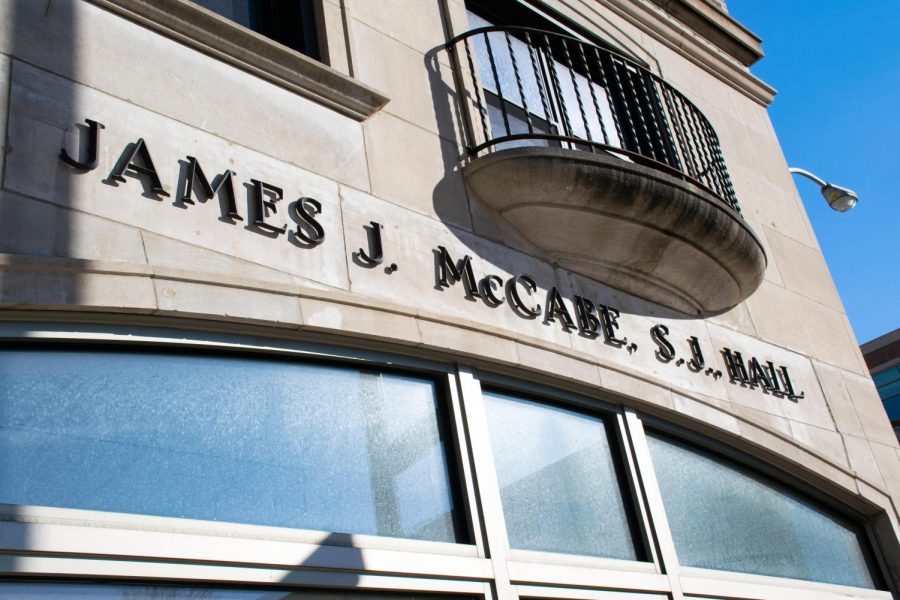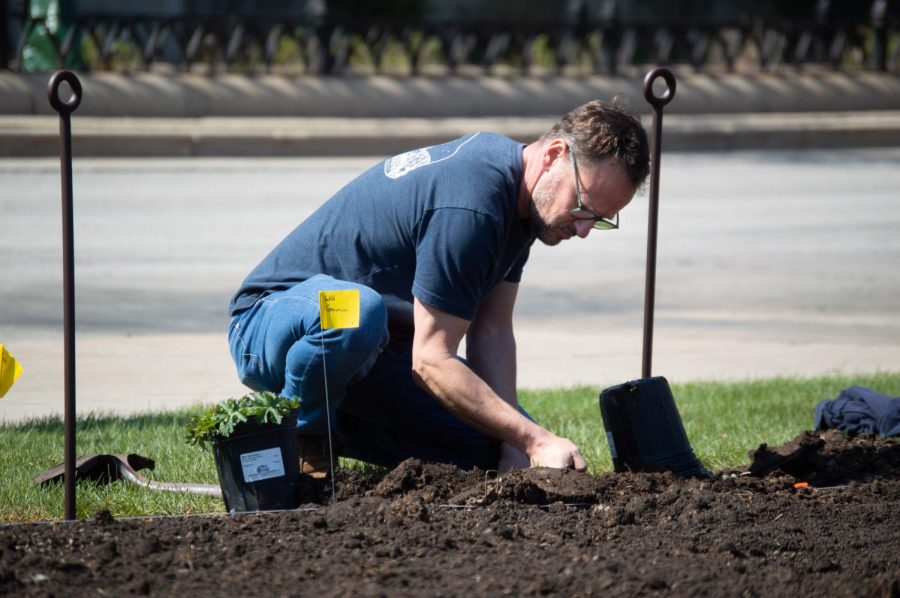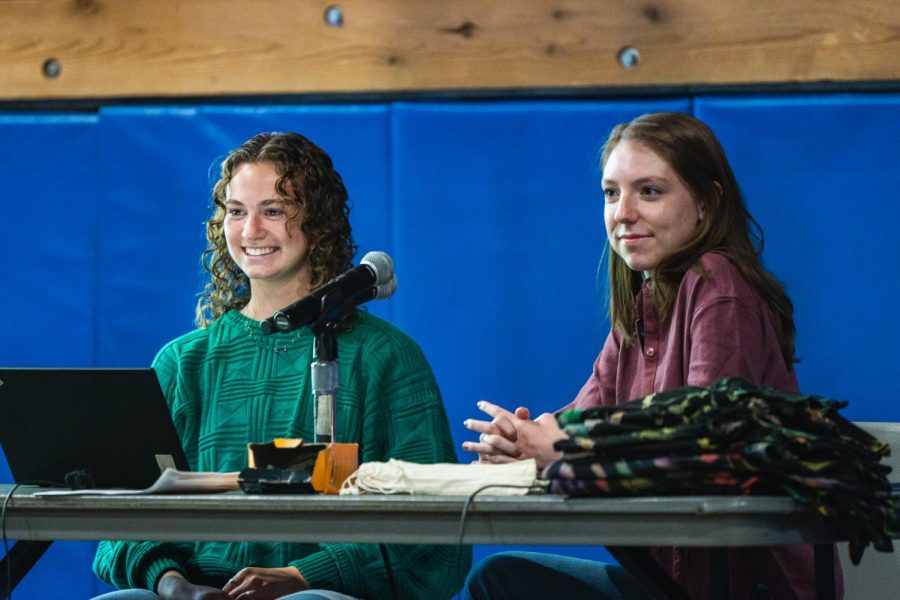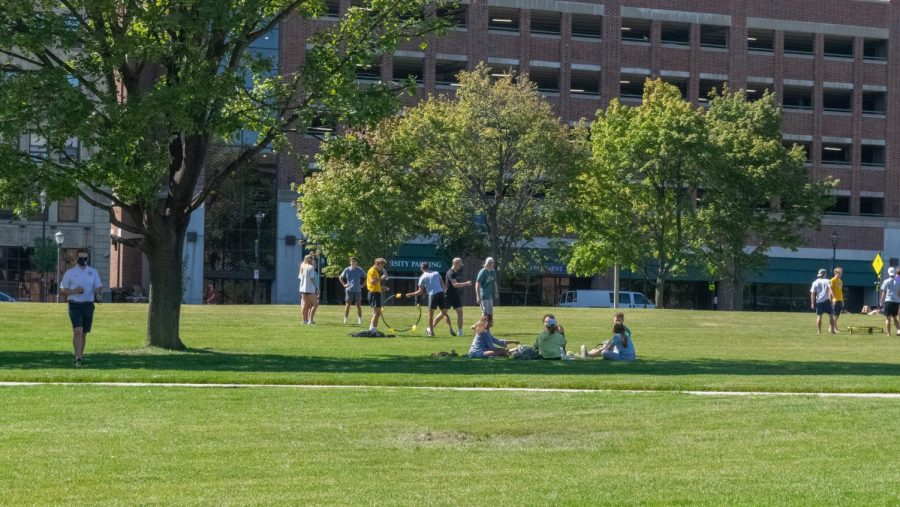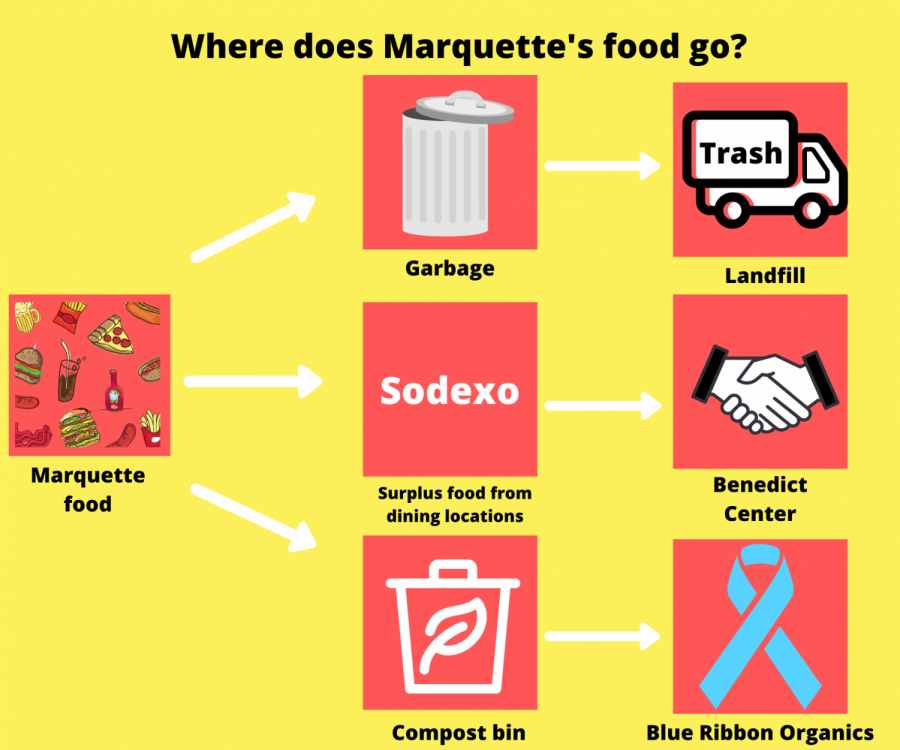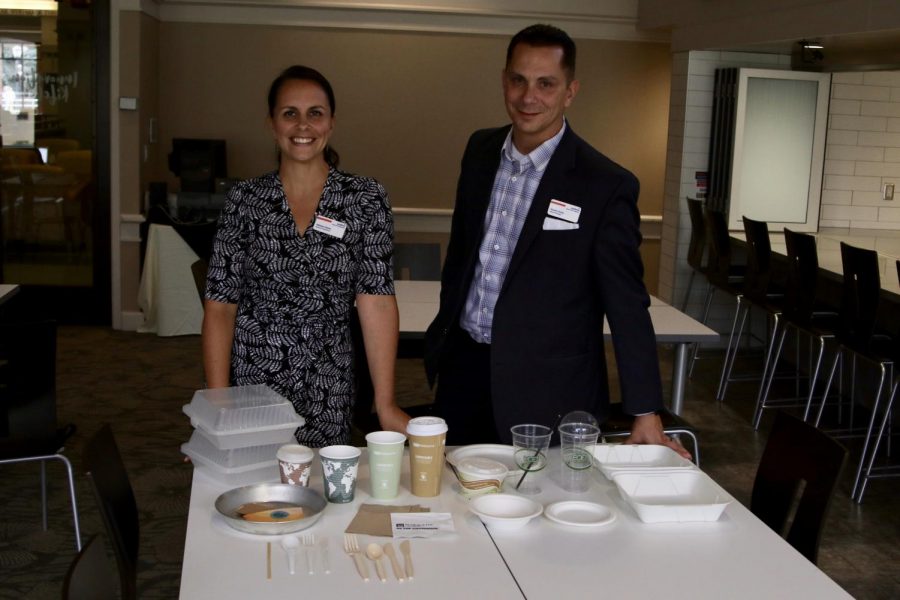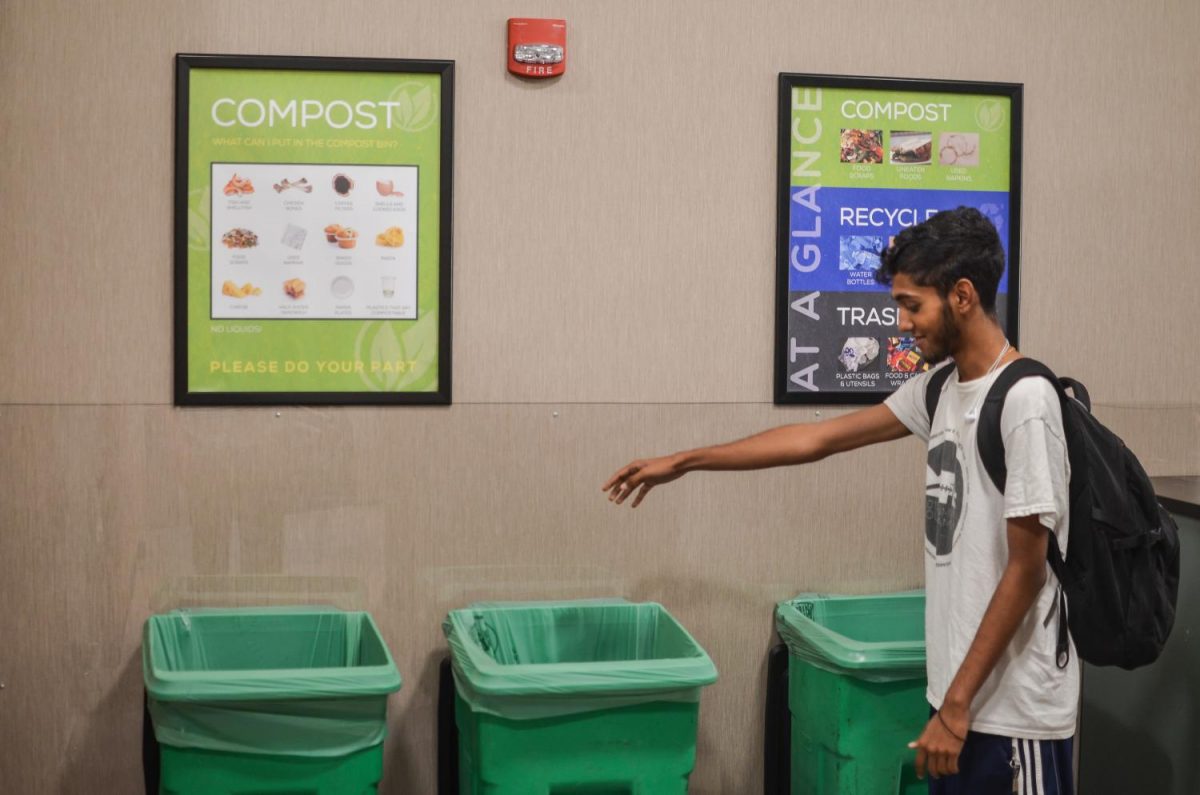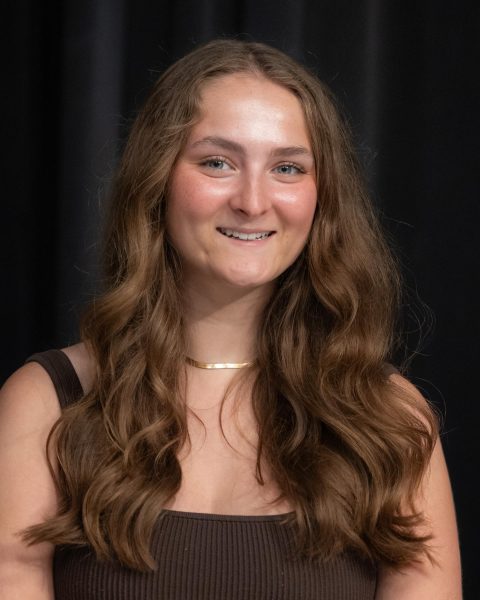After finishing a meal, one typically wouldn’t think to save their food scraps, but for those living in McCabe and Gilman Apartments, residents have the opportunity to collect certain food waste for the Compost Crusader starting March 1.
Compost Crusader is a local business owned by women that gathers food waste from commercial properties, residents, businesses and multi-family units. The waste is then brought to Blue Ribbon Organics in Kenosha, Wisconsin, where it is turned into compost.
Students who participate in this pilot program learn how much food waste is produced in residence halls and university-owned apartments.
“Students don’t technically have to sign up for it [Compost Crusader] anymore,” Allyssa Vesley, sustainability intern and senior in the College of Arts & Sciences, said. “They can give us their email if they want the consistent outreach information, but I think right now our goal is to just have it open to everyone.”
Vesley said residents can keep their food scraps in a bin with a lid to avoid smell, or in a tupperware and freeze it. Vesley said one could also use a paper bag, but she said this method may attract bugs and could cause a bad smell.
Residents could also purchase specific containers from Compost Crusader’s website directly, Vesley said.
Maggie Stoz, apartment manager of McCabe Hall and senior in the College of Communication, said there will be a designated compost bin in the trash room for McCabe. For those who live in Gilman, Stoz said residents will be able to check out a trash room key card and bring their food scraps to the bin.
Chelsea Malacara, sustainability & energy management coordinator, said the Compost Crusader can only accept certain food scraps, which include a variety of different produce, such as eggshells, pasta, breads and more. Yet, there are also many other items that cannot go into the compost bins, such as raw meat, glass, metal and more.
It’s important not to put contaminated food scraps into the bin, as Vesley said as a sustainability intern, every week they will have to check the bin to ensure that there is only the proper bits of waste inside.
Vesley said if the bin did get contaminated, they would either have to pick out the contaminated pieces, or it would ruin the whole bin. She said putting contaminated food scraps would make it extremely difficult to turn into compost.
“According to the Environmental Protection Agency, 40% of our trash is comprised of food waste,” Malacara said in an email. “While our sustainability interns didn’t get the opportunity to conduct a waste audit at McCabe, we know from statistics and literature reviews that it’s likely that figure aligns with what kind of waste college students are generating.”
Malacara said the EPA projects that over 70 billion pounds of food waste are sent to landfills each year, where she said this food could have been recovered.
“Landfills are responsible for 15% of all methane gas emissions in the US. This is a problem because methane is thirty times more powerful than carbon dioxide- which means it has a more significant and powerful impact on the atmosphere,” Malacara said in an email.
Malacara said Marquette has a target, wanting to reduce its waste generation by 25% as well as divert 25% of waste from landfills by 2025. This program, Malacara said, has the potential to eventually help the university reach this goal.
“It is our responsibility to be good stewards of Earth and our community,” Malacara said in an email. “As an institution, our operations have a major impact on the environment from our energy use, energy sources, transportation, food procurement, product procurement, etc. and we have a moral imperative to act on the Care for Our Common Home. Therefore, any program or plan that will help us reduce our impact is important to undertake.”
As of now, the program will end in May, but Stoz said they are testing this program to see how much landfill they can reduce. From there, she said the program will determine to see if the Compost Crusader could be effective at other university-owned buildings, including residence halls and other apartments.
“One of the Marquette phrases as you know is ‘be the difference,’ you know? And what it means to be the difference is how we serve and help others around the community,” Maggie Szot said. “Trying this program out and trying to help the environment and the community itself … that’s why it’s important, giving students [the] opportunity to be a part of it and be that difference.”
This story was written by Julia Abuzzahab. She can be reached at julianna.abuzzahab@marquette.edu


